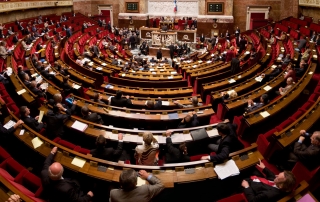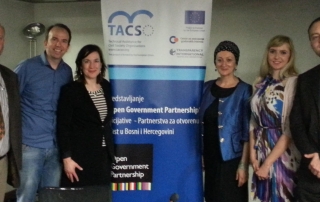ACCESS INFO’S LATEST NEWS
KEEP UP TO DATE! READ ABOUT OUR DAY-TO-DAY WORK FIGHTING FOR MORE TRANSPARENCY ACROSS EUROPE
Legal basis identified for mandatory EU lobby register
Brussels, 17 June 2013 – An independent legal analysis launched today in Brussels has revealed that the EU institutions have a legal basis on which to act to make the Transparency Register mandatory. The study, launched at the beginning of the Register’s review process, was commissioned by ALTER EU and the Austrian Arbeiterkammer to counter the Commission’s arguments that the
French Transparency Law: it’s time to regulate lobbying
Madrid/Paris, 17 June 2013 – Access Info has joined 10 civil society organisations from around the world in calls on the French parliament to adopt legislation which will introduce a mandatory register of lobbyists. The calls for greater regulation of lobbying come as the French parliament (Assemblée Nationale) considers a draft law on control of conflicts of interest in the
Access Info Europe calls on the Ukrainian Parliament to adopt without further delay important amendments concerning access to information
Madrid, 15 June 2013 – Access Info Europe calls on the Ukrainian Parliament to adopt Draft Law No. 0947 before summer recess and align Ukrainian legislation with the new information laws that Ukraine passed in 2011. Draft amendments are pending in the Parliament since May 2012 and are key for the proper enforcement of the landmark 2011 Law of Ukraine
European Court of Justice ruling entrenches EU secrecy in international relations
Madrid, 7 June 2013 – Access Info Europe notes with regret today’s ruling by the General Court of the European Court of Justice which upholds the European Commission’s refusal to make public documents about the EU-India Free Trade Agreement requested by the lobby watchdog Corporate Europe Observatory. The central question in the case Corporate Europe Observatory v European Commission
Bosnia and Herzegovina: Proposed FOI Law reforms would limit access to much information of public importance.
Access Info joins OSCE in calling for withdrawal of amendments Madrid, 4 June 2013 – Access Info Europe today raised concerns that proposed amendments to the Law on Freedom of Access to Information of Bosnia and Herzegovina would exclude large volumes of information from the right of access to information. In separating the freedom of information law from the
The Transparency Register’s code of conduct for lobbyists needs to be strengthened during upcoming review
The Transparency Register’s code of conduct for lobbyists needs to be strengthened during upcoming review Madrid/Brussels, 5 June 2013 – When lobby groups sign up to the EU’s voluntary lobby register [1] they agree to a code of conduct for lobbyists. This code however is currently weak and vaguely-worded, according to ALTER EU, a coalition campaigning for
Cover photo: International Open Data Conference via Flickr (CC BY 2.0)





